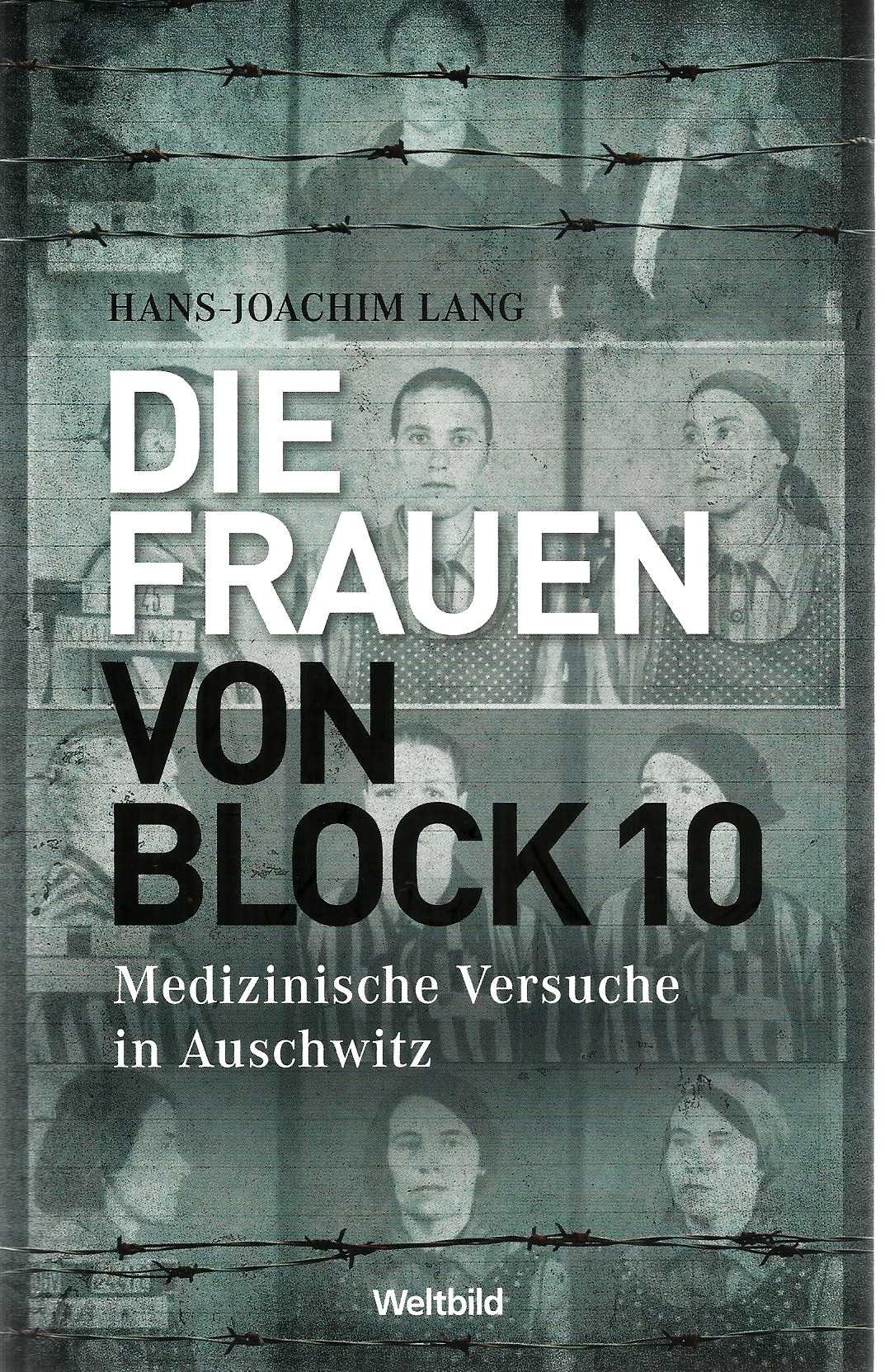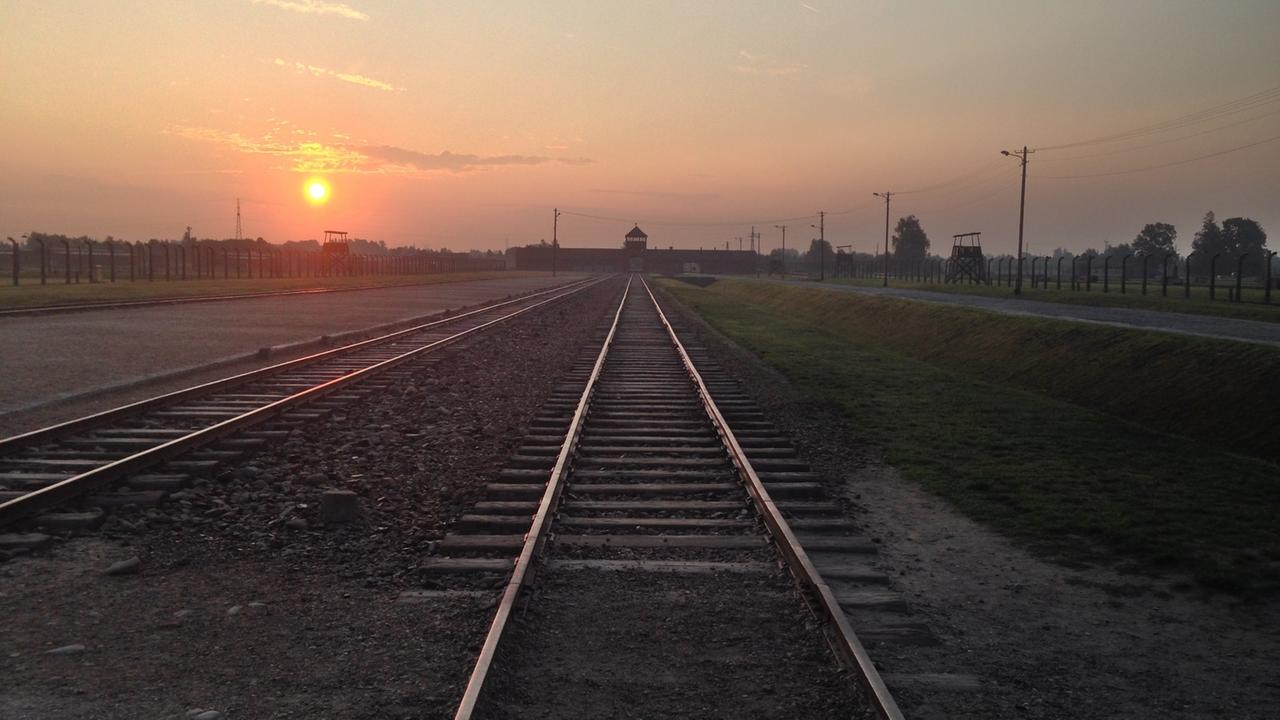
Nazi-Mediziner Carl Clauberg soll im Auftrag von SS-Führer Heinrich Himmler die unterjochten “Ostvölker” nach dem siegreich beendeten Krieg unfruchtbar machen, zu reinen Arbeitssklaven. Viele starben in Folge der menschenverachtenden Experimente.
Videolänge: 42 min
Datum:15.07.2020
Verfügbarkeit:Video verfügbar bis 04.05.2023, in Deutschland, Österreich, Schweiz
https://www.zdf.de/dokumentation/zdfinfo-doku/medizinische-experimente-in-auschwitz-clauberg-und-die-frauen-von-block-10–100.html
Medizinische Experimente in Auschwitz: Clauberg und die Frauen von Block 10 Doku (2019)
Die Todesfabrik Auschwitz sollte ihre “Effizienz” 1944 noch steigern. Täglich starben Tausende Juden. Was die Opfer erlebten und die Täter antrieb, zeigen erschütternde Zeugnisse.
https://www.zdf.de/dokumentation/dokumentation-sonstige/ein-tag-in-auschwitz-108.html
Doku: Ein Tag in Auschwitz – ZDF (HD)
Die Dokumentation zeigt einen “typischen” Tag in Auschwitz, Ende Mai 1944. Doch auch verschiedene Wege, die Opfer, aber auch Täter nahmen, bevor sie in das Konzentrations- und Vernichtungslager kamen. Authentische Fotos, Zeichnungen von KZ-Häftlingen, aber auch Selbstzeugnisse der Lager-SS werden filmisch und grafisch eingefügt, Schauplätze auf den Fotografien mit Orten der Gedenk-Anlage heute abgeglichen, der Weg durch den Tag vor Ort rekonstruiert – in den geschichtlichen Kontext gestellt und durch Zeitzeugen und Historiker gedeutet.
Die Tonbandaufzeichnung der Aussagen des Lagerfotografen Bernhard Walter beim “Auschwitz Prozess” in Frankfurt:

after auschwitz krzysztof penderecki
Krzysztof Eugeniusz Penderecki (23 November 1933 – 29 March 2020)
Krzysztof Penderecki is a composer and conductor. He was born on 23 November 1933, in Dębica, died on 29th March 2020. In the history of 20th-century music, his career stands out for his fast rise to the top, matched by none, with the possible exception of Stravinsky.
Childhood
Krzysztof Penderecki was born in Dębica (in Yiddish – Dembitz), a town in south-eastern Poland, in 1933. Before World War II the town was mostly inhabited by Hassidic Jews. He comes from a multi-cultural family with Armenian-German-Polish roots. His grandfather was a German evangelical; his grandmother came from Stanisławów (now Ivano-Frankovsk, Ukraine) and was Armenian. The composer told the Polish Radio:
It’s a strange thing that this music, which I had in my ears then, now returns. In two of my pieces klezmer music came back in a way in which I was aware of it – the ‘Sextet’ (2000), and even the ‘Concerto grosso’ (2001). I most likely heard motifs like these as a child.
He started his musical adventure with private piano lessons but quickly grew tired of them. His affection for music was born when he saw his father’s violin. He was taken by the mystery of the violin, by the difficulty of playing even one clear note. Penderecki desired to become a virtuoso and practised Bach’s sonatas after school. In junior high school, he founded a band and started bringing Dębica’s musical scene to life. He soon went to Kraków to study composition. https://culture.pl/en/artist/krzysztof-penderecki
Composition Studies and First Success
Krzysztof Penderecki studied composition privately with Franciszek Skołyszewski, and then, from 1955-58, with Artur Malawski and Stanisław Wiechowicz at the Academy of Music in Kraków. In 1958, he began lecturing in composition at his alma mater, and, in 1972, he became a professor there, also serving as rector until 1987. He lectured, too, as an assistant professor in Essen at the Folkwang-Hochschule (1966-68) and at Yale University (1973-78).
When the results of the second Competition of Young Composers of the Polish Composers’ Union were decided in 1959, it turned out that Penderecki’s compositions (submitted under different pseudonyms) had won the first, second and third prizes for his Strophes (Strofy) for soprano, voice (reciting) and ten instruments (1959), Emanations (Emanacje) for two string orchestras (1958-59) and for his Psalms of David (Psalmy Dawida)for mixed choir, string instruments and percussion (1958). At that time, Penderecki was an unknown 28-year-old assistant professor in the Composition Department of the State Musical Academy in Kraków. The German publisher, Herman Moeck, took the score after Strofy was performed at the Warsaw Autumn International Festival of Contemporary Music that same year. The piece was soon being performed all over Europe, and Penderecki received a commission from the famous festival in Donaueschingen.
In 1960, he composed a piece for 52 strings entitled 8’37” (the duration of the composition), for which he received a prize the following year from the UNESCO International Rostrum of Composers in Paris. The work is now known as Threnody for the Victims of Hiroshima (Tren Ofiarom Hiroszimy), and is played all over the world. Krzysztof Penderecki thus became a leading representative of avant-garde music. At the time he said:
All I’m interested in is liberating sound beyond all tradition.
Worldwide Recognition
His work Fluorescences (Fluorescencje), first performed in 1962 in Donaueschingen, confirms this. In addition to the instruments of the symphony orchestra, Penderecki introduced a large and experimental percussion section including a sheet of metal to imitate thunder, pieces of glass and metal scratched with a file, rattles, an electric bell, a saw, a typewriter and a siren. The traditional instruments also sound strange, because they are played in unconventional ways. In 1966, in Münster, the premiere performance of Passion According to St. Luke (Pasja według św. Łukasza) took place. With this work, Penderecki balanced the radicalism of the avant-garde with more conventional harmonics. Penderecki once said:
It is not important to me how the Passion is described, whether as a traditional or as an avant-garde work. For me it is simply one that is genuine. And that is enough.
https://culture.pl/en/artist/krzysztof-penderecki
Krzysztof Penderecki – Dies irae (Auschwitz Oratorium); Polymorphia; De natura sonoris
